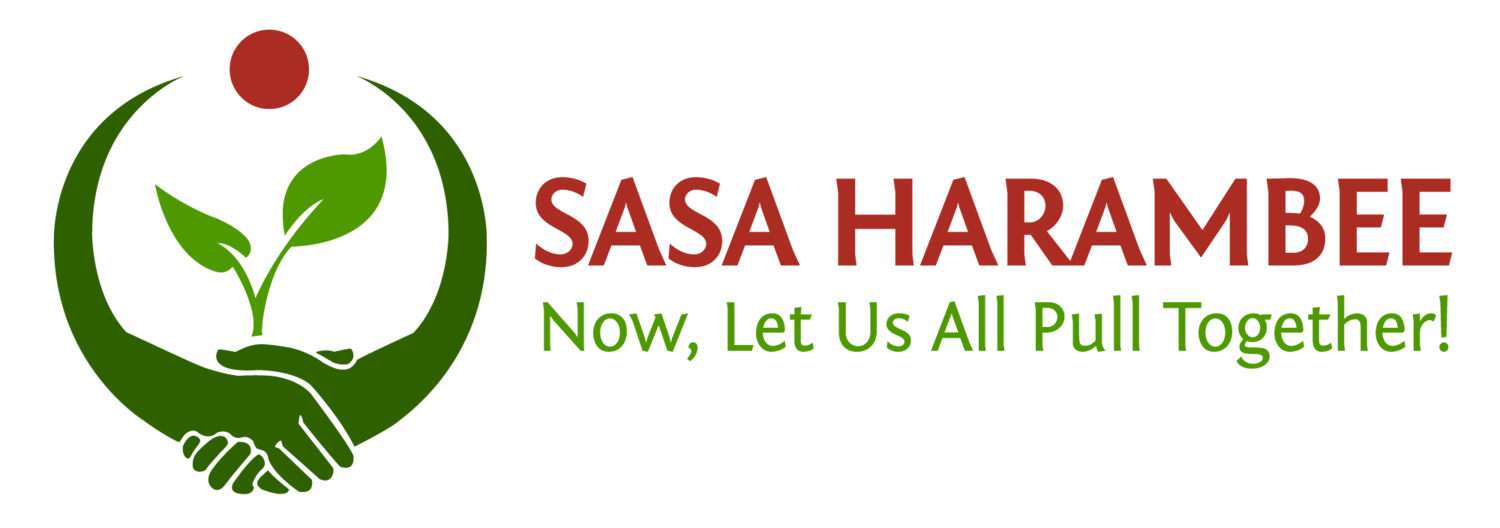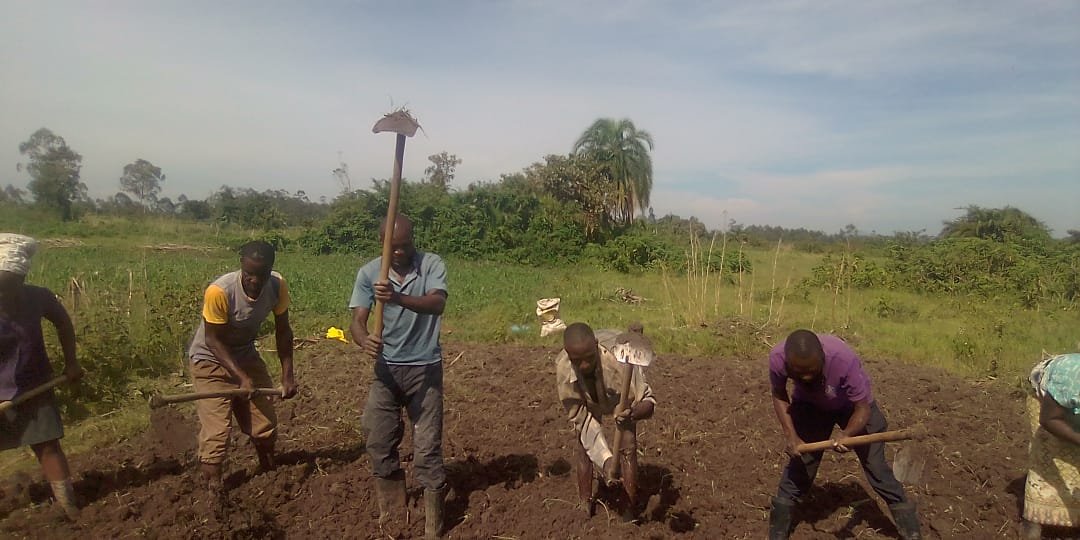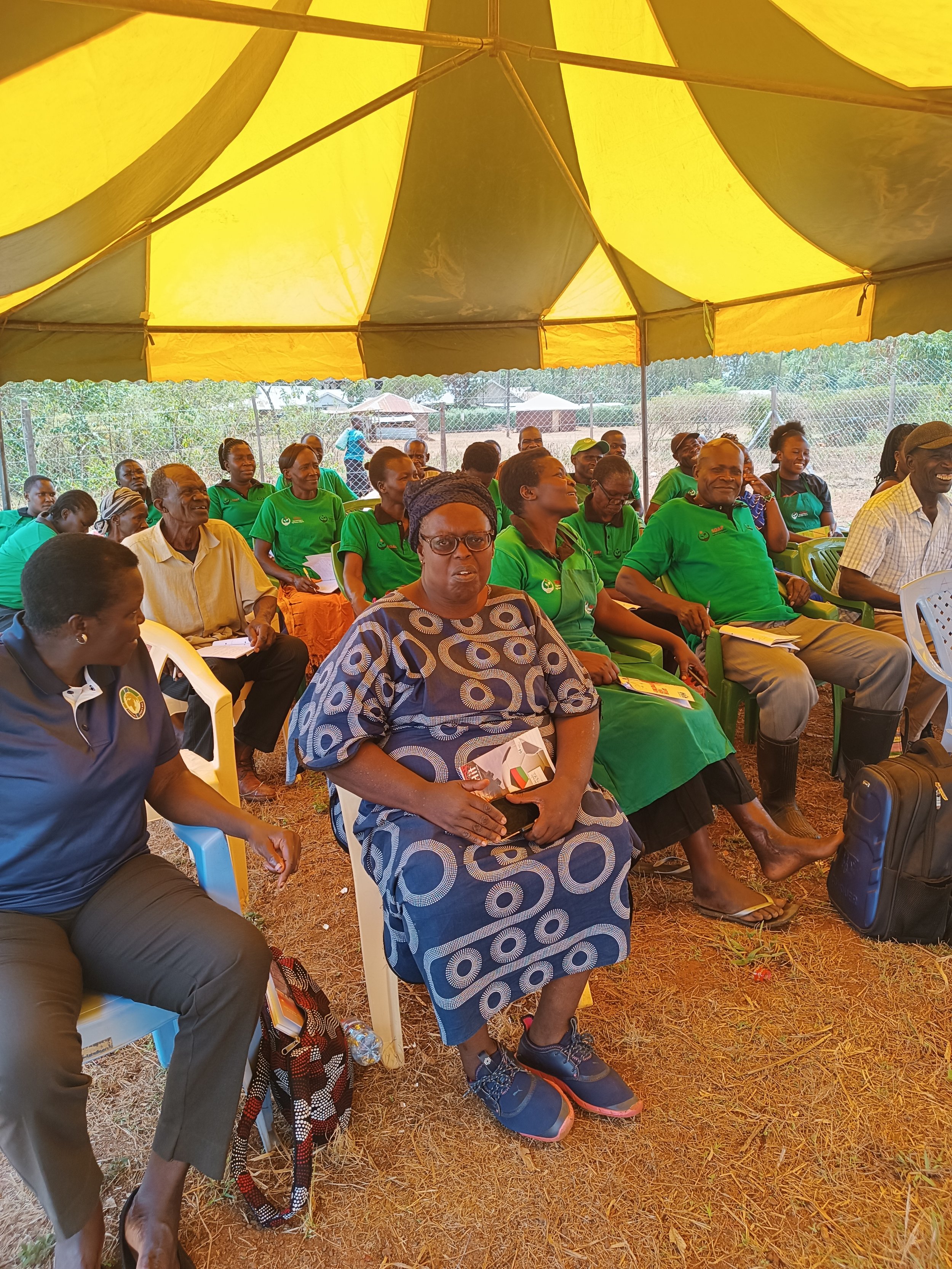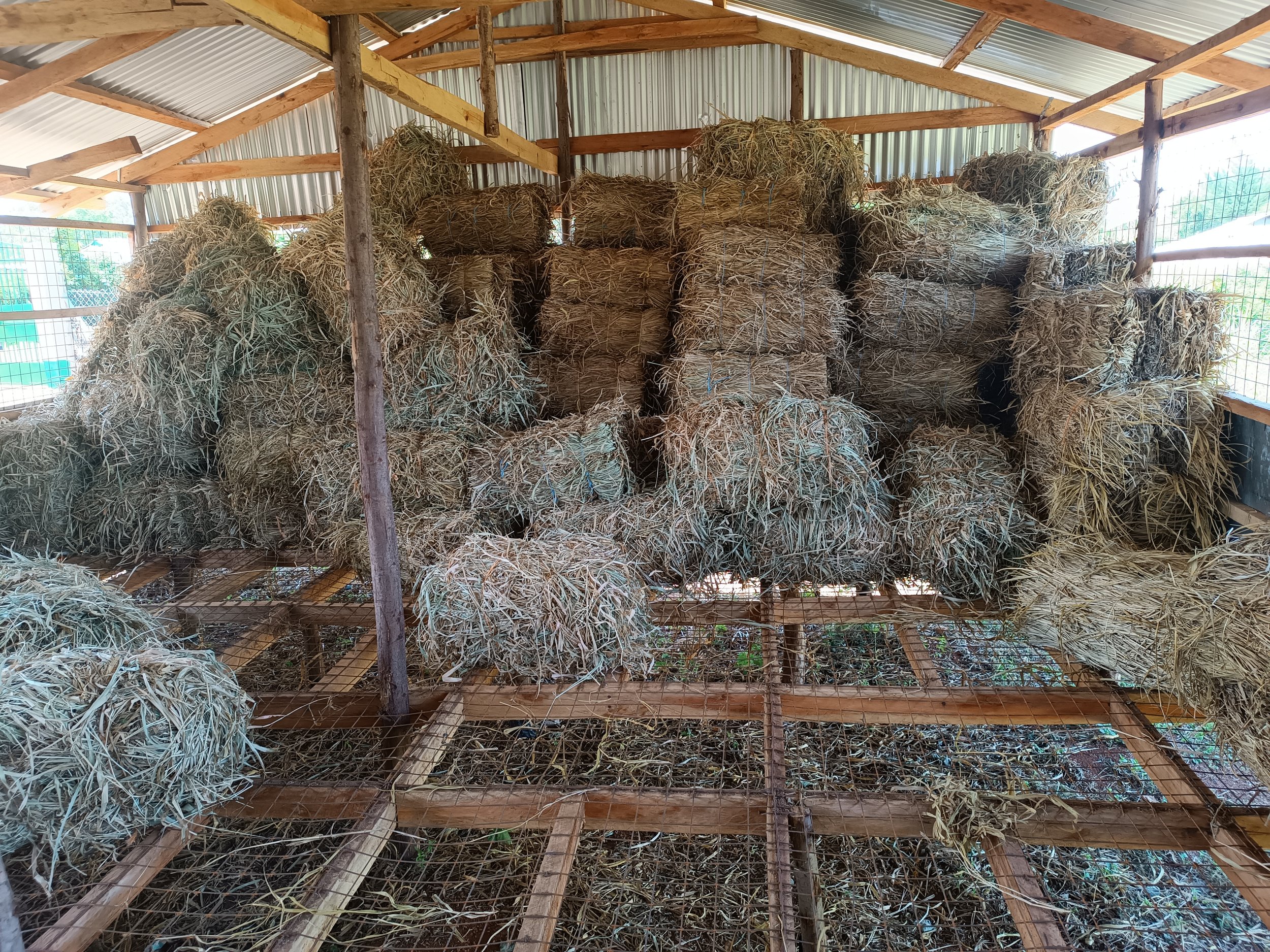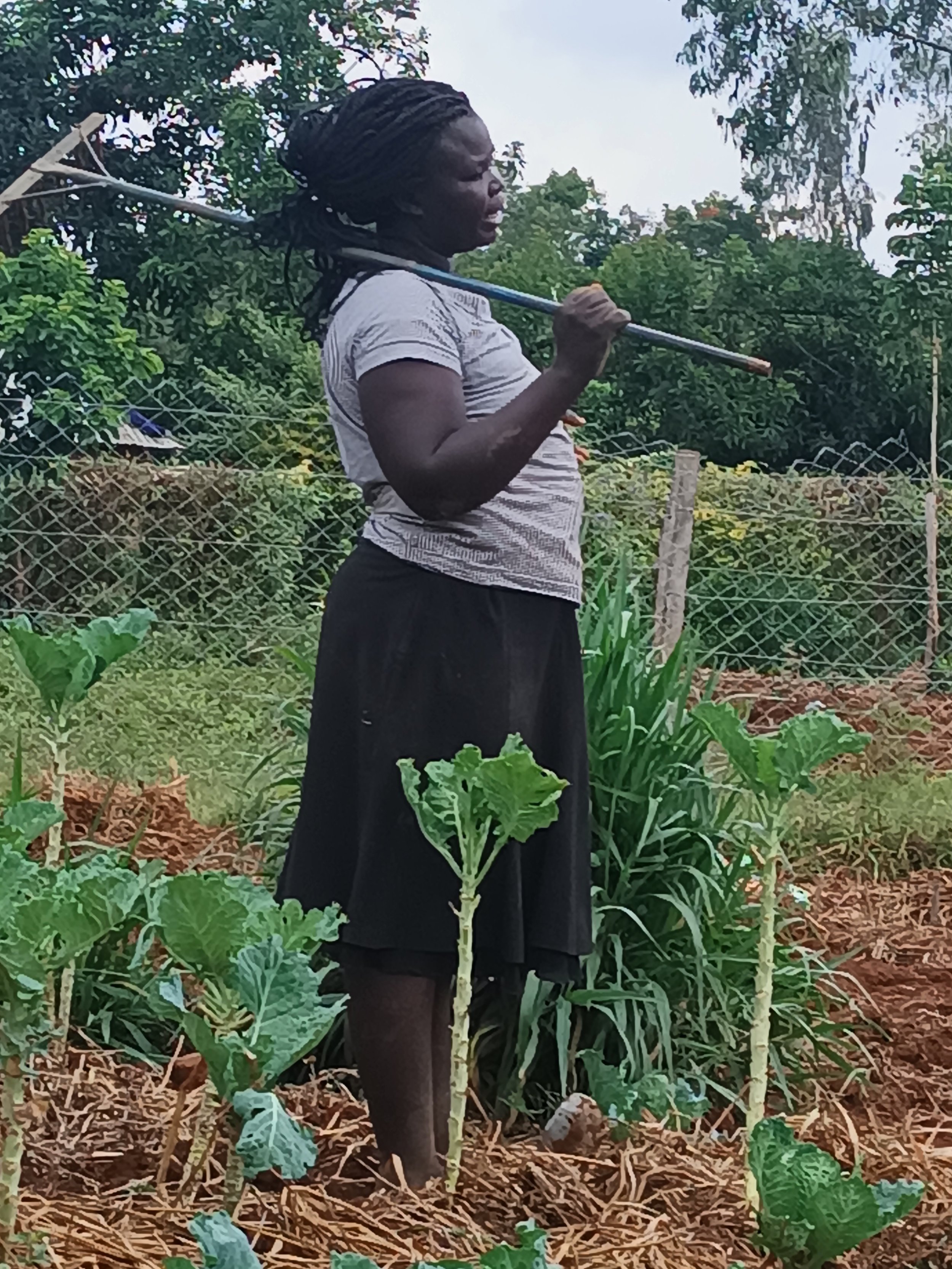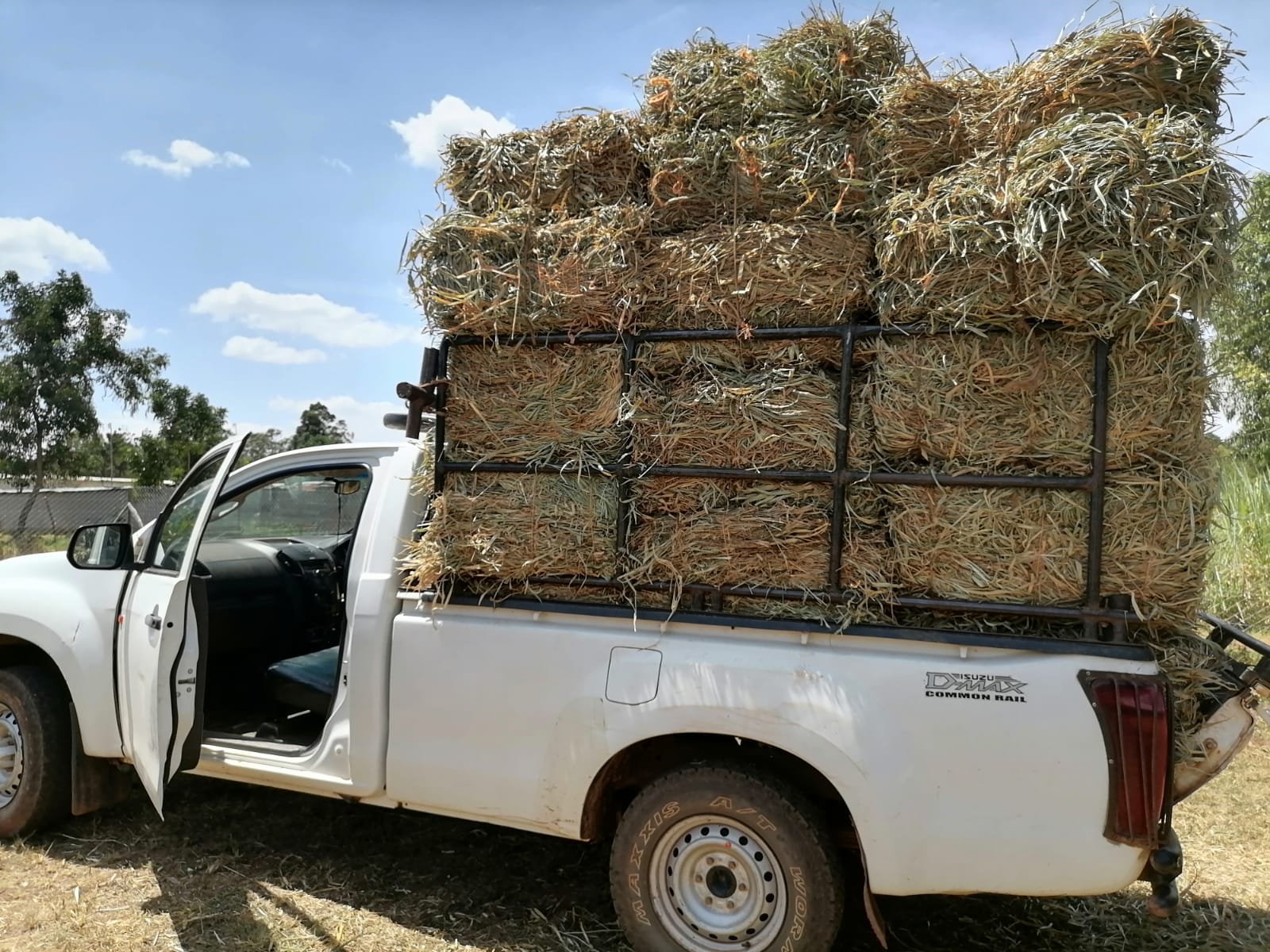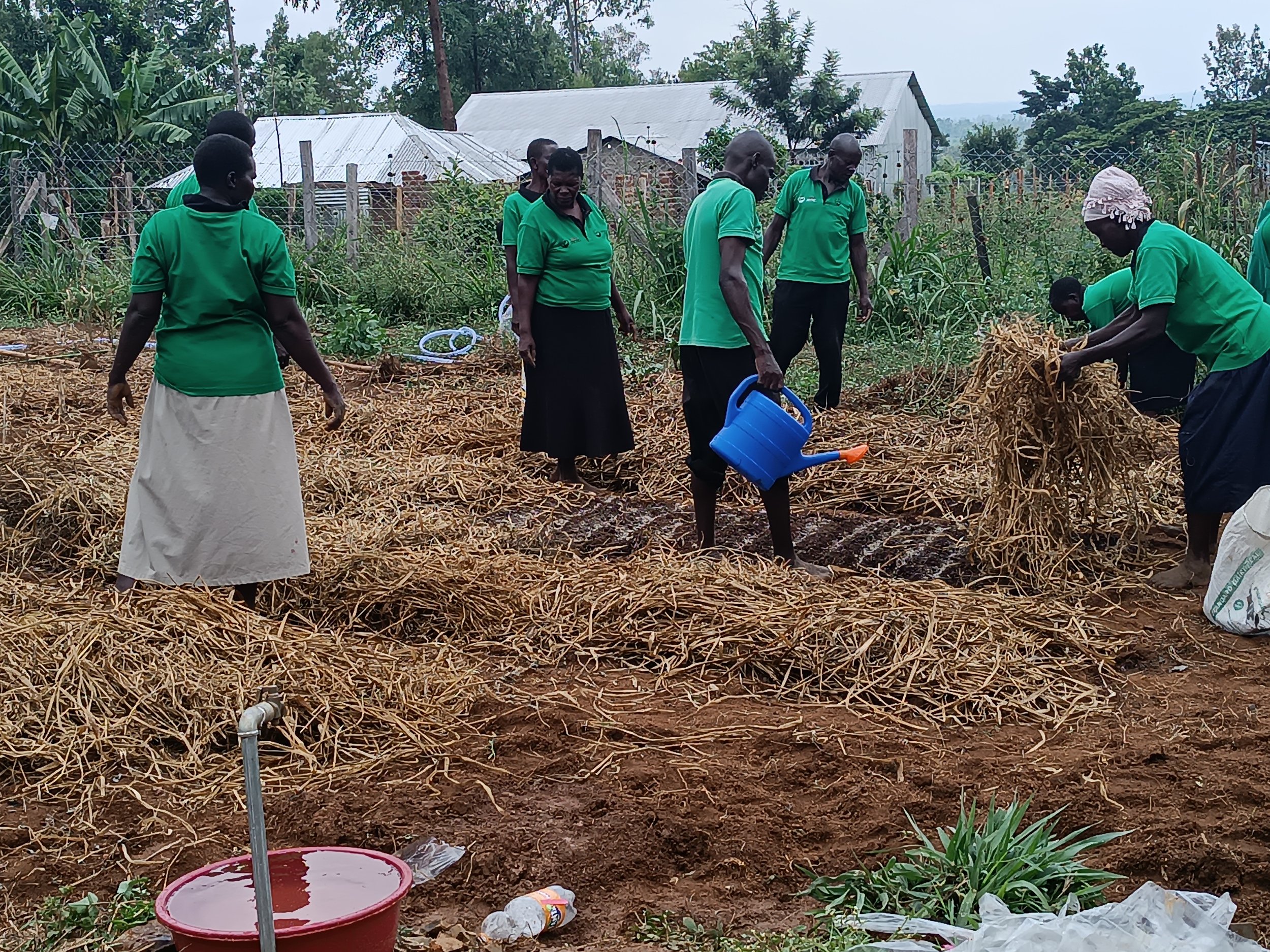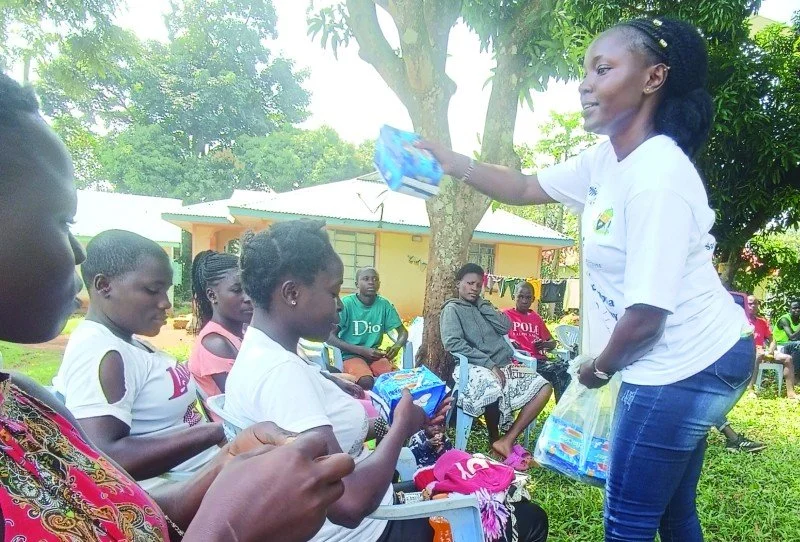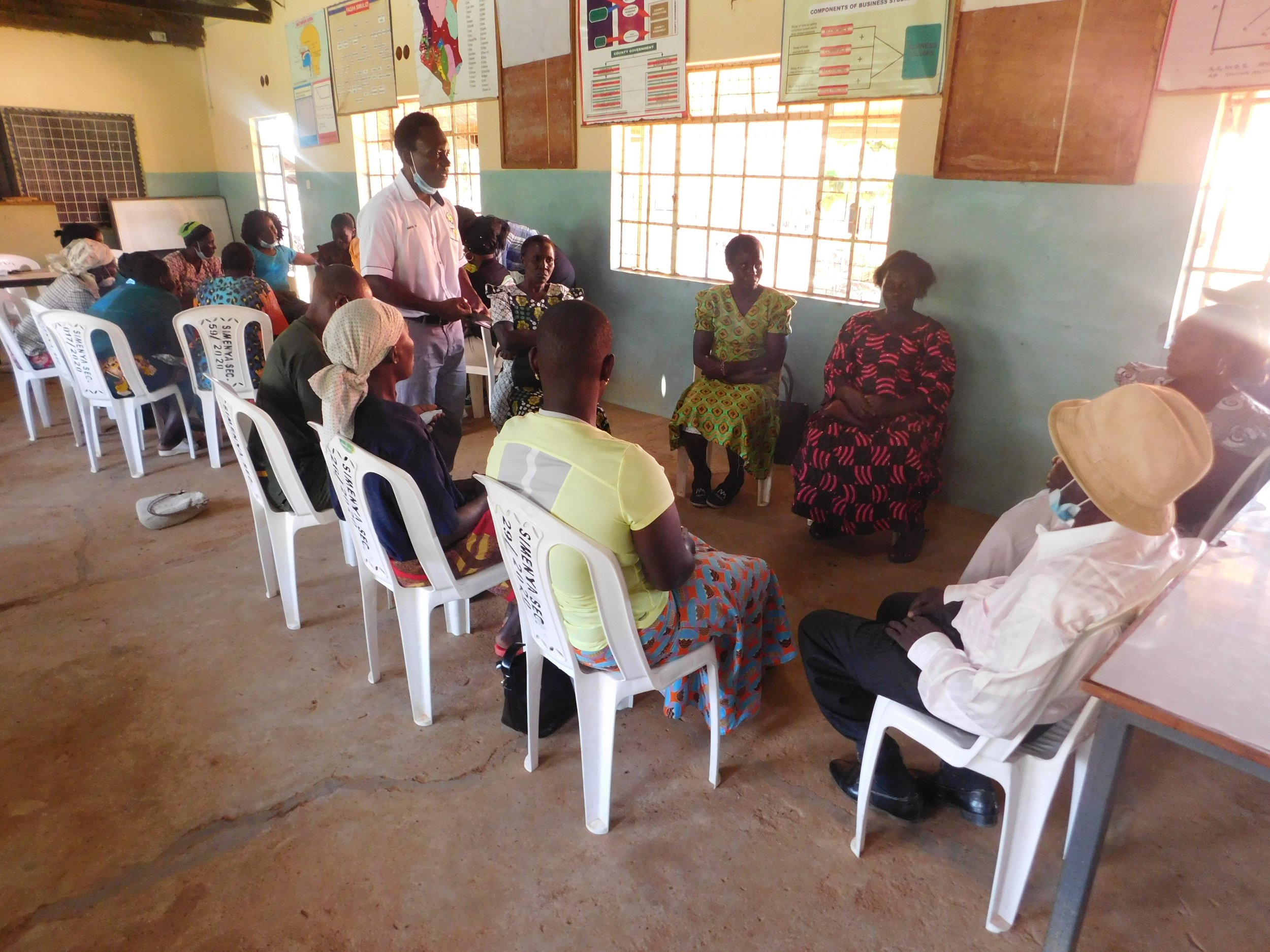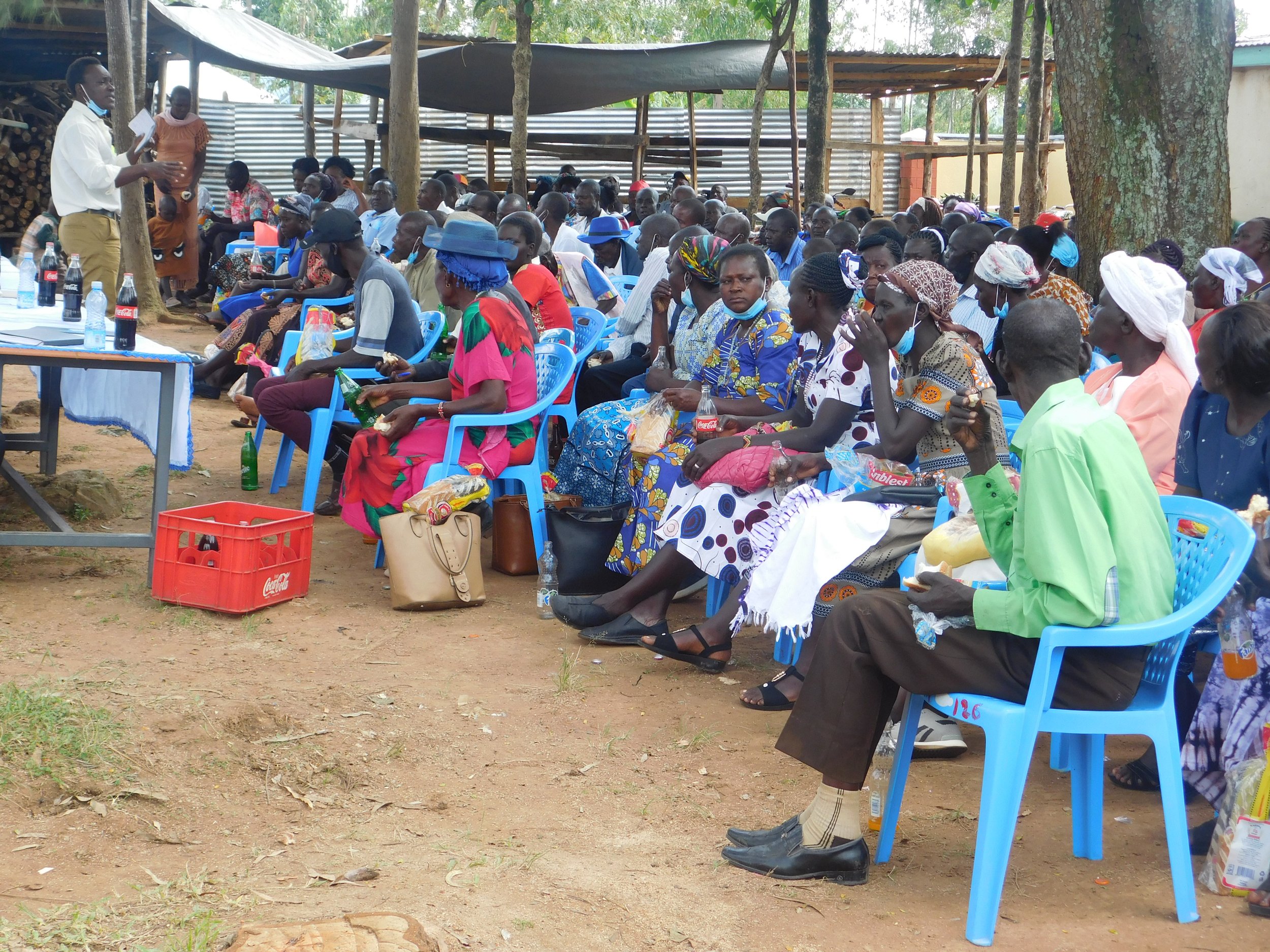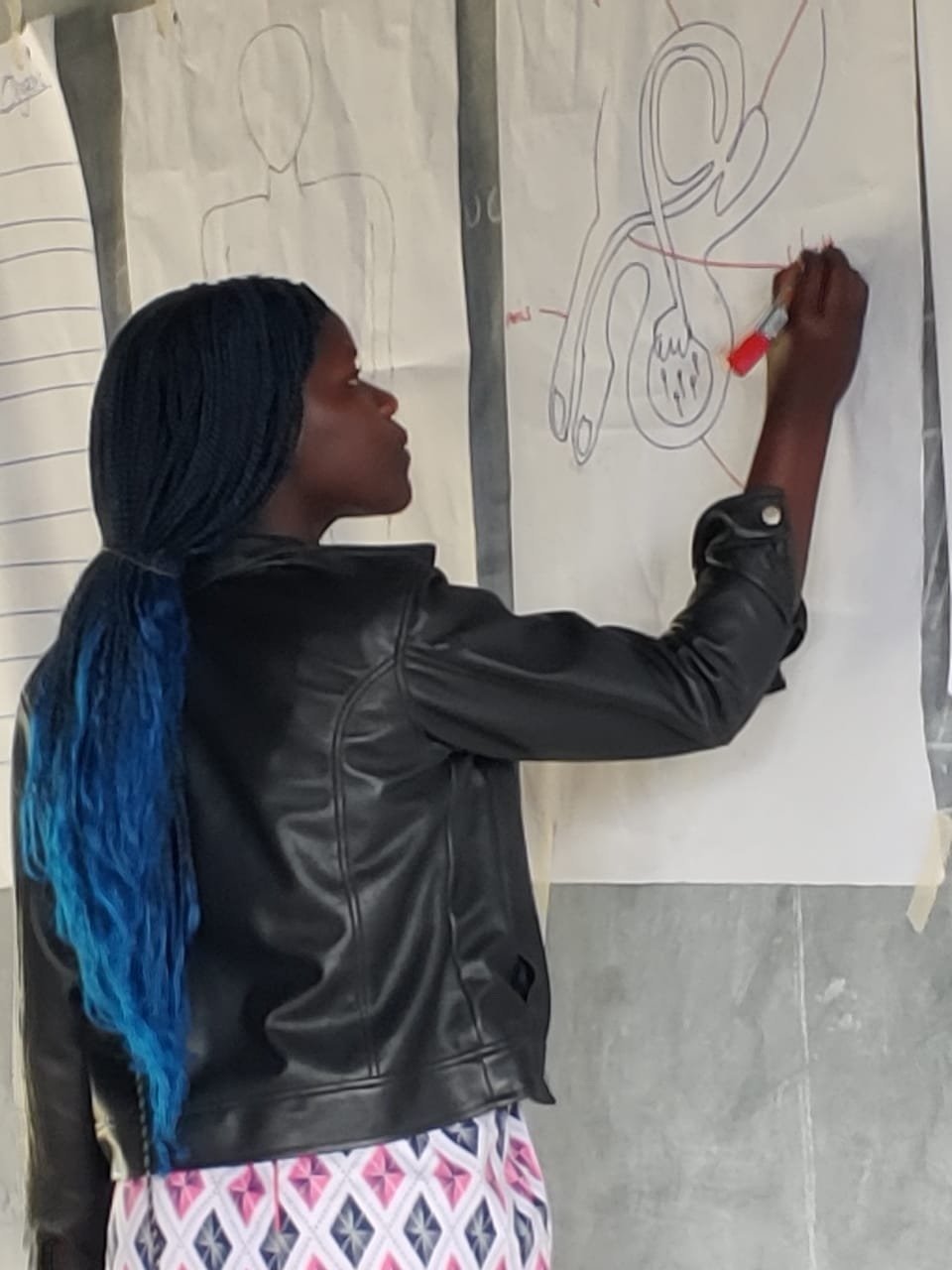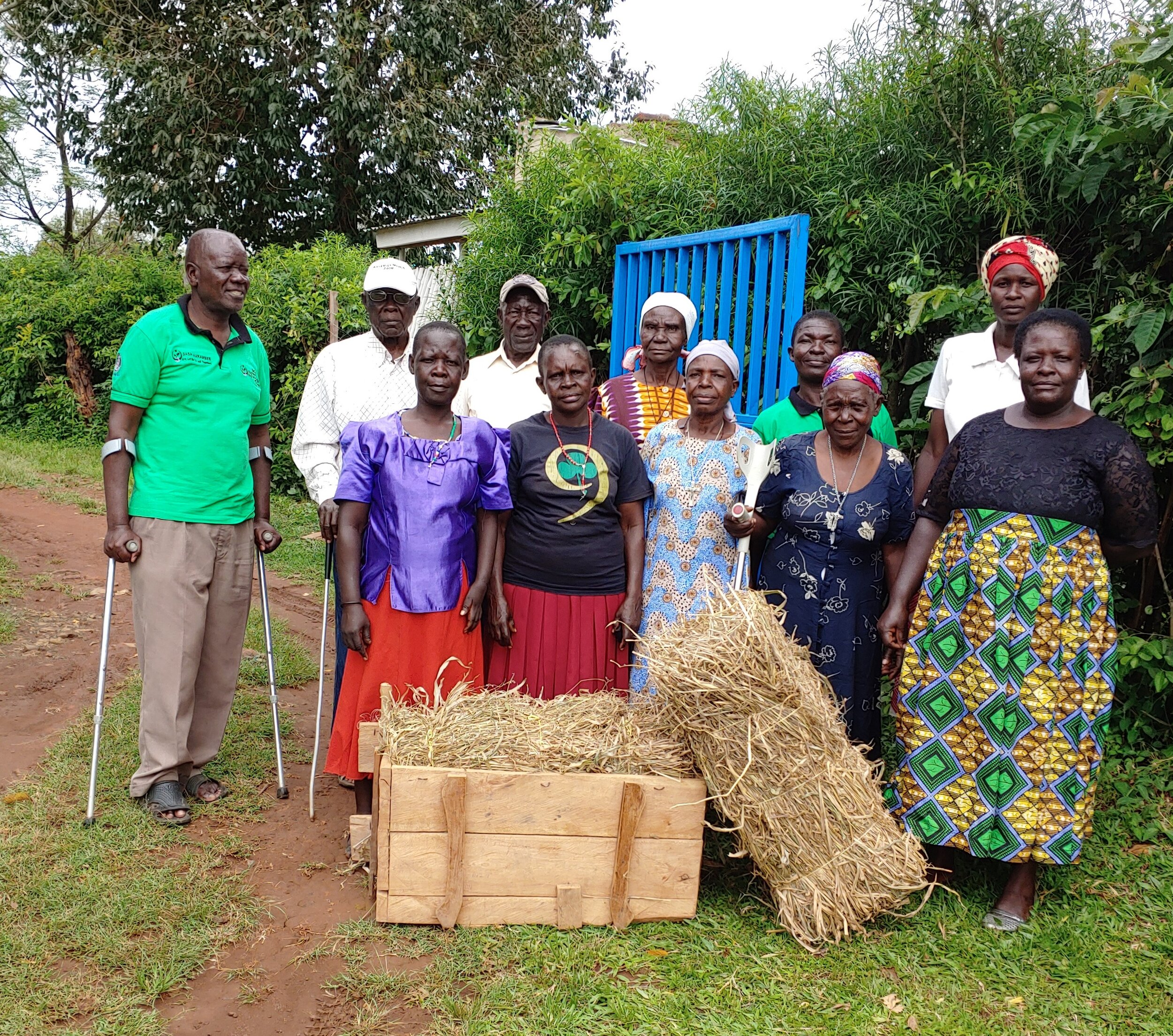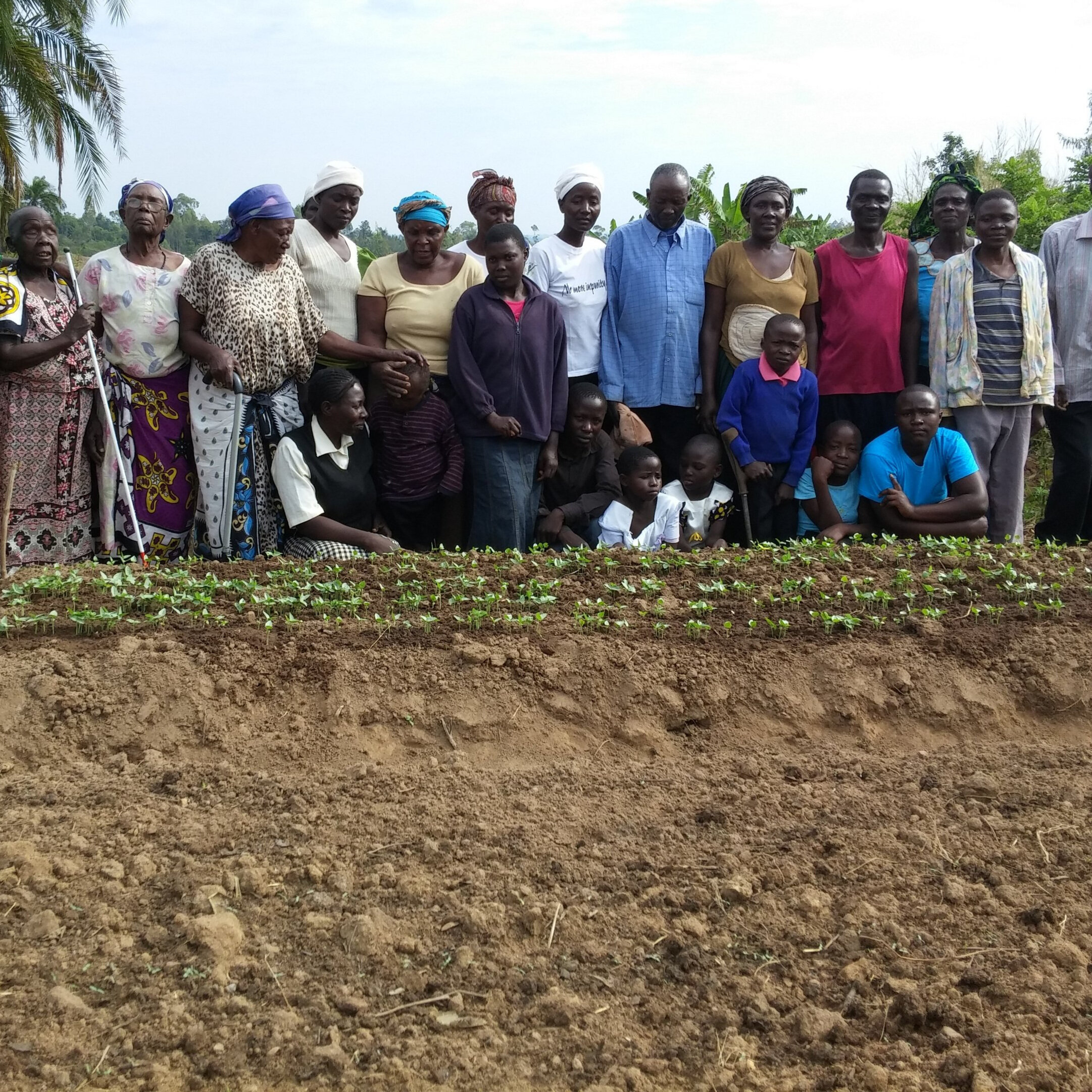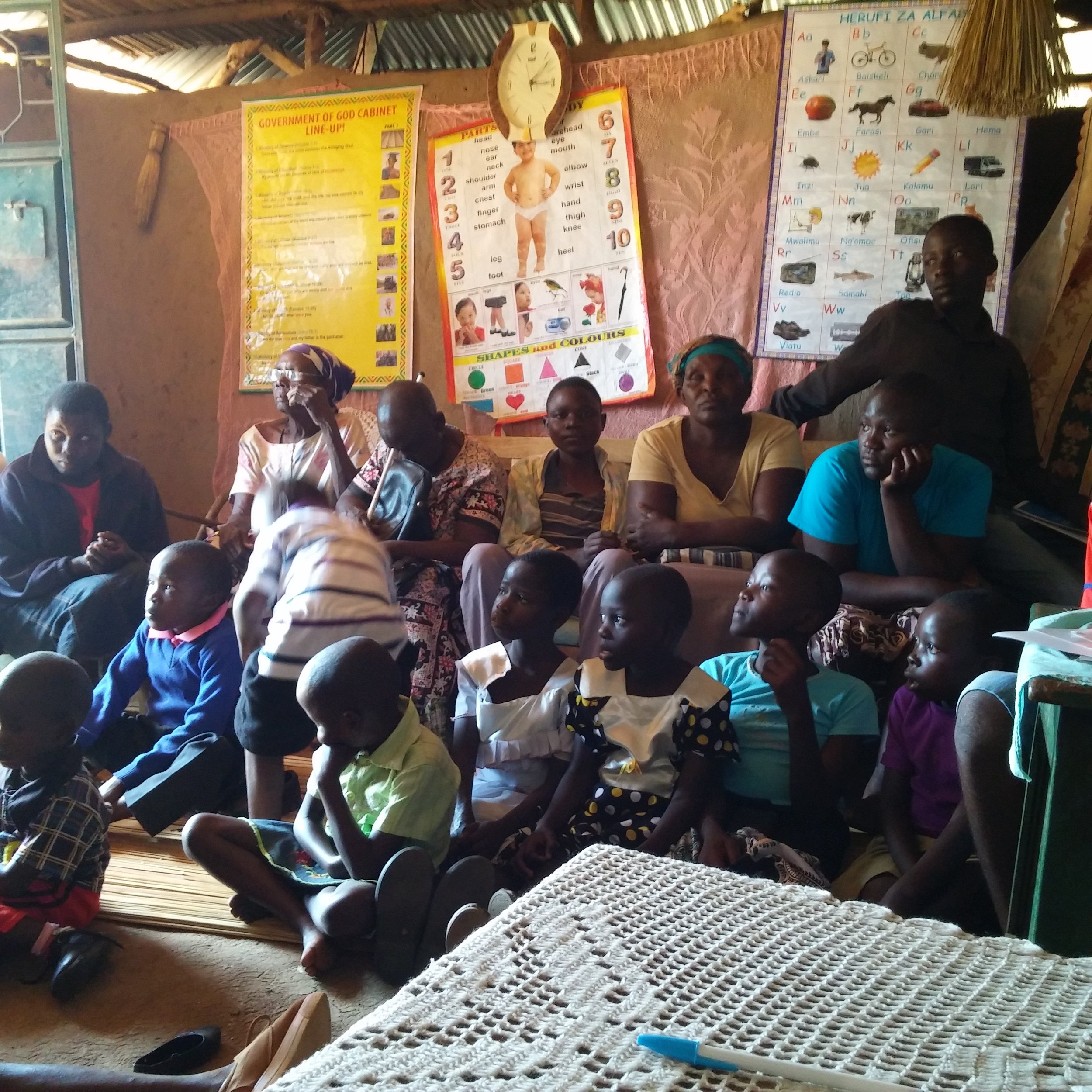With a holistic approach to community development in western Kenya, Sasa Harambee has been engaged by locals to assist in the following key focus areas.
Agroecology and Regenerative Farming
Sigomre Organic Agriculture Program (SOAP)
The Sigomre Organic Agriculture Program (SOAP), an initiative of Sasa Harambee, is transforming rural livelihoods through agroecology—a farming approach that works with nature to restore soils, strengthen food systems, and build climate resilience. Working hand in hand with small-holder farmers, SOAP promotes sustainable practices that revive degraded land, improve household nutrition, and create economic opportunities across the Sigomre region.
Our journey began with a simple mission: to turn subsistence farmers into producers of abundance. Through hands-on training, mentorship, and demonstration farms model farmers now lead their peers in adopting techniques that enhance soil fertility, conserve water, and increase productivity—all without relying on harmful chemicals. Core practices such as no-till farming, mulching, intercropping, composting, making top-grade, organic feed for poultry, and indigenous seed propagation have become powerful tools in fighting hunger and restoring ecosystem health.
Ensure a food-secure future…
SOAP’s community-centered model emphasizes peer-to-peer learning where trained Farmer Teachers share knowledge across villages, ensuring that solutions spread widely and sustainably. Farmers now grow traditional vegetables, keep improved indigenous poultry, produce organic hay for livestock, and propagate local seeds—creating an integrated, circular farming system that benefits both people and the planet.
Our Aggregation and Training Center, near Sigomre Market, serves as the heart of this transformation. Here, farmers access training demonstration plots, receive instrumental education, participate in knowledge exchanges, and connect with buyers. SOAP’s long-term vision includes establishing a fully equipped Agroecology Learning and Resource Center to increase the impact across Western Kenya and beyond.
As climate change threatens food security, your partnership can help us expand agroecological farming and empower more families to thrive sustainably. Donor support enables us to train more Farmer Teachers, equip demonstration sites, and develop resilient food systems rooted in community, equity, and care for the earth.
Youth Health and Leadership
Ugunja Development Initiative (UDI)
ALTERNATIVE GIFTS INTERNATIONAL SUPPORTS SASA HARAMBEE’S INITIATIVES LIKE OUR UDI PROGRAM. SEEN HERE AS SANITARY TOWELS ARE DISTRIBUTED TO GIRLS ALONG WITH HEALTH EDUCATION AND EMPOWERMENT TEACHINGS.
In partnership with Rotary International and the Ugunja Development Initiative (UDI), Sasa Harambee is addressing youth health concerns and transforming youth leadership across Siaya County. In rural communities like Ugunja sub-county, young people face steep challenges: limited opportunities after school, minimal access to health services, and few platforms to develop leadership skills. However, change is underway. Through our school health club pilot (now active in 26 junior secondary schools) over 2,000 students ages 12 to 17 are gaining the tools to make informed decisions, build confidence, and lead their peers. These clubs are aligned with Kenya’s national curriculum and are showing powerful results. Leadership is being nurtured among both boys and girls, which has historically been a gender-dividing challenge. Youth champions are stepping up to educate their classmates. Parents are also engaged through classes on adolescent development, effective communication, and child protection. This creates a ripple effect of awareness and support. As a direct result of our efforts, we are witnessing girls’ empowerment, improved cross-gender dialogue, and increased school attendance.
Beyond the classroom, we’re reaching older youth through an innovative approach devised by Sasa Harambee leadership: sports tournaments that double as health education outreach campaigns. In a region where young people aged 18 to 35 often face unemployment, lack of education opportunities, and low engagement with health clinics, these tournaments offer more than just a series of games, they provide a platform. They provide a platform for connection, education, and care. With formalized soccer and netball competitions, prizes, and on-site health services, these events are drawing hundreds of participants. At recent tournaments, one in three youth tested had an untreated infection, and one in three tested positive for an STI. Thanks to our on-site mobile clinics, immediate treatment was available. We also distributed thousands of condoms, sanitary towels to girls, and delivered vital health education, all while celebrating the power of sport to unite and uplift.
What Luke learned and how it positively impacted his college experience.
Your support makes this possible. Every donation to Sasa Harambee fuels a movement rooted in dignity, resilience, and community. With your help, we can train more youth leaders, expand our school health clubs, and bring life-saving outreach to even more villages. With $50, we can equip a youth team with sports gear. Together, we are not just giving—we are growing. Join us in planting seeds of hope and cultivating a future where every young person has the tools to thrive.
Plant seeds that will flourish…
Supporting People With Disabilities
Together We Succeed (TWS)
Persons with Disabilities (PWDs)
Together We Succeed (TWS) unites Persons with Disabilities (PWDs) and their caregivers across Ugunja and Ugenya Sub-Counties to foster empowerment, solidarity, and sustainable livelihoods. Our 16 groups meet monthly to offer psychological support, share personal experiences, and learn from one another’s journeys. These gatherings create safe, encouraging spaces where members speak openly, find comfort, and build the confidence to face daily challenges.
Beyond emotional support, TWS groups operate village banking initiatives that enable groups to start small income generating businesses. These funds have helped participants support their families, and improve their living standards through diverse, income-generating activities such as farming, poultry keeping, basketry, and detergent production. These projects not only enhance economic well-being but also cultivate teamwork and self-reliance.
Together We Succeed continues to inspire hope and resilience. It proves that when communities unite with purpose, disability becomes a source of strength—driving transformation from within.
Expanding Our Impact: A New Chapter in 2026
In Kenya, cultural stigma often leads to children with disabilities being hidden away—sometimes literally under the bed. Many caregivers lack the skills and support needed to help their children thrive. However, with our support, change is coming.
A groundbreaking and proven program has recently launched in Kenya, offering a transformative approach to caregiver empowerment. Its four pillars are:
Understanding the lived experience of children and families, with a focus on reducing stigma
Promoting inclusion and participation of children with disabilities within their families and communities
Maximizing each child’s developmental potential, health, and quality of life
Empowering caregivers through information sharing and peer support
Break the cycle of stigma and isolation…
Sasa Harambee has already trained the caregiver of one child with cerebral palsy and a Community Health Promoter, who will reach out to even more families with this critical education. In February 2026, we will launch 20 caregiver groups to begin this vital journey of learning and support.
Join Us: Make Inclusion a Reality
We invite you to partner with Sasa Harambee and Together We Succeed in this critical capacity-building initiative. Your support will help us:
Expand caregiver training and peer support networks
Strengthen income-generating activities for PWDs and their families
Build inclusive, resilient communities where every individual can thrive
Together, we can rewrite the story for Kenya’s most vulnerable. Together, We Succeed.
Water and Sanitation
Sasa Harambee has created partnerships to construct 50 spring protections throughout the entire Sigomere Ward area and to ensure their ongoing maintenance. A natural spring is made potable by constructing a cement basin and retaining wall with a leach field behind it. Thanks to a grant from Rotary International, the first eleven (11) spring protections were done from July 2016 through April 2017. Twenty-nine more (29) spring protections were installed in 2022. All of Sasa Harambee’s water and sanitation projects meet WHO (World Health Organization) standards.
The Ministry of Health records shows that, within one year of protection, the mortality rate from waterborne diseases in all age groups decreased to zero. In addition, users of the springs report that they no longer experience daily bouts of diarrhea.
In 2022, school health clubs of 22 schools upgraded their WASH (Water and Sanitary Hygiene) facilities through small grants awarded to students, parents, and school staff. The grants were funded through a larger grant made by Rotary International. These upgrades included handwashing stations at latrines for both females and males and doors on all stalls. We also ensure that ongoing basic cleanliness of sanitation facilities is being taught in the schools’ health clubs.
There is significant need for water and sanitation education, as well as project implementation, in rural Kenya. We enthusiastically welcome sponsorship by Rotary clubs or through your direct financial support to help build more spring protections and to make school latrines girl-friendly.
The location of 46 protected springs
